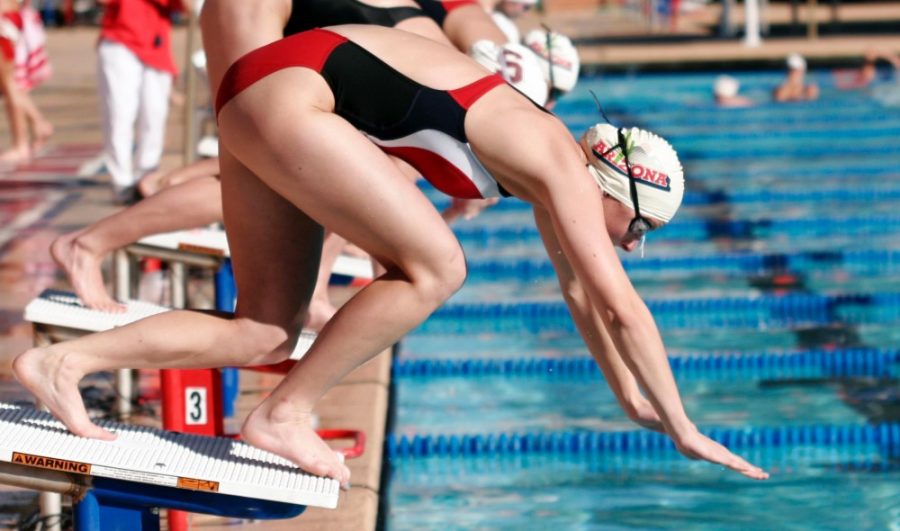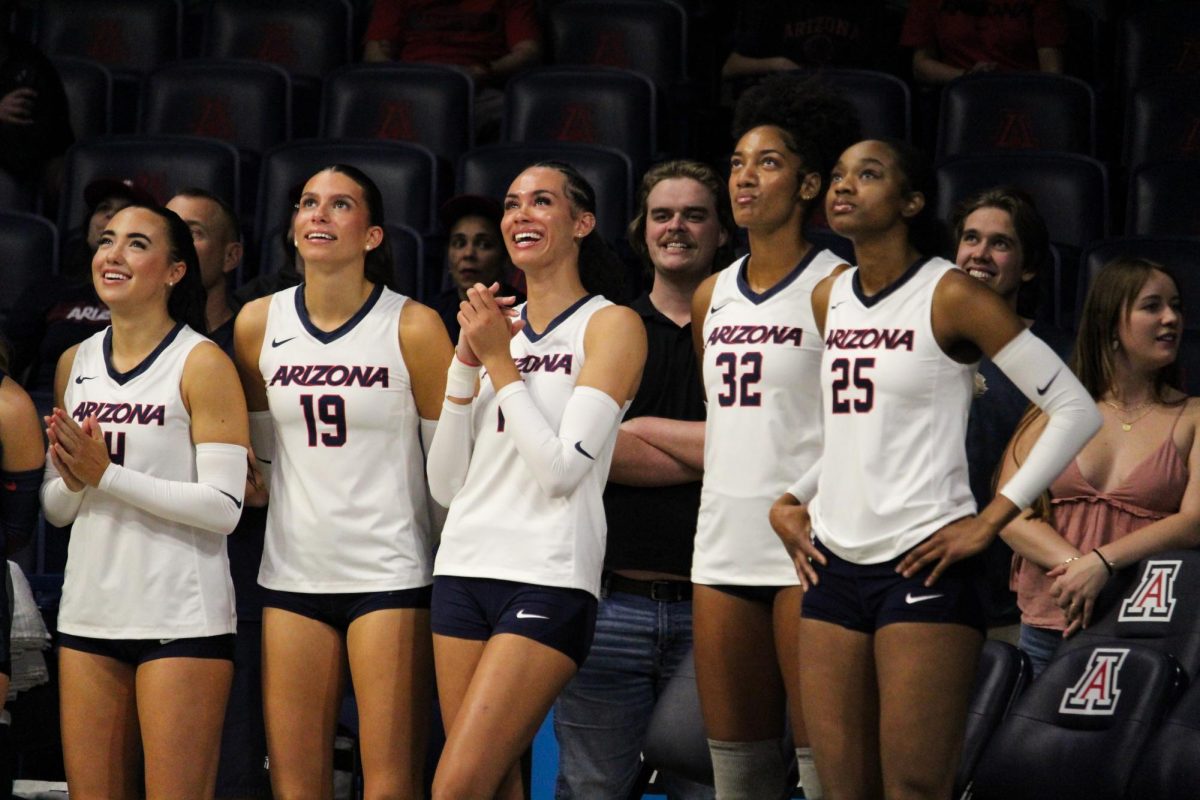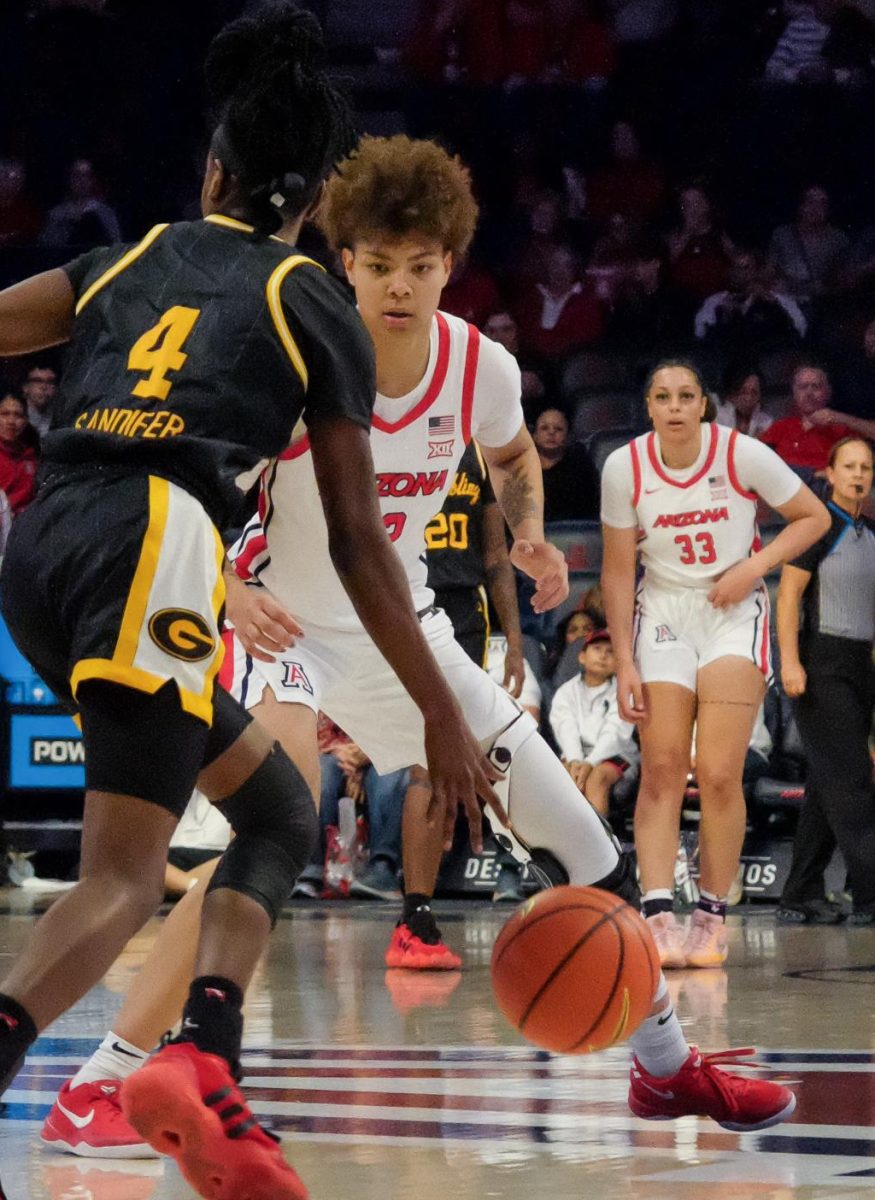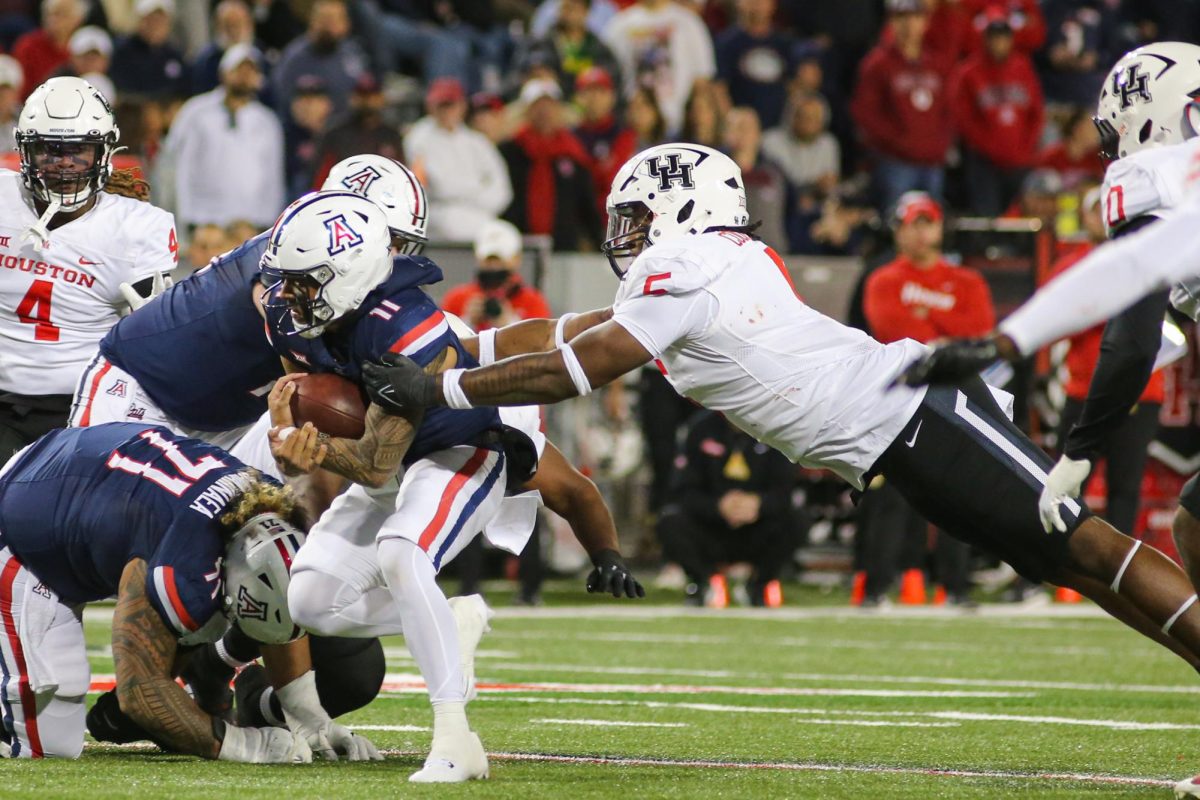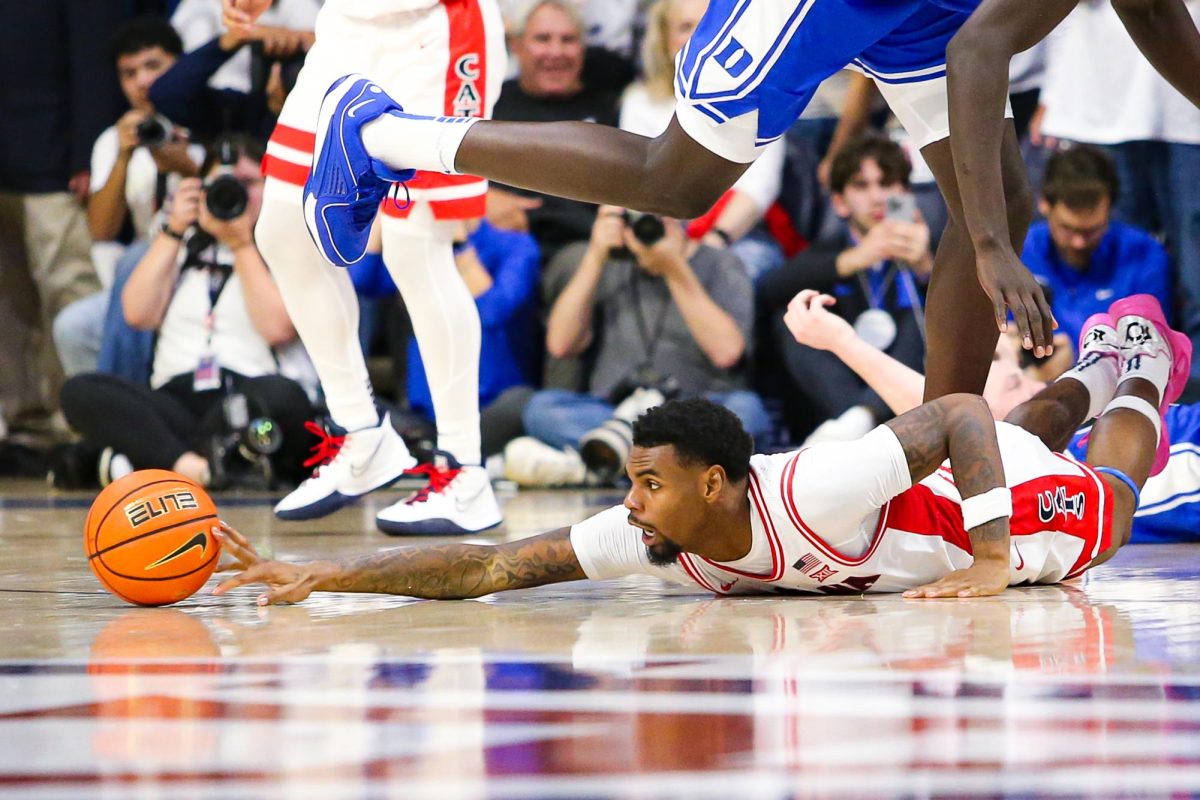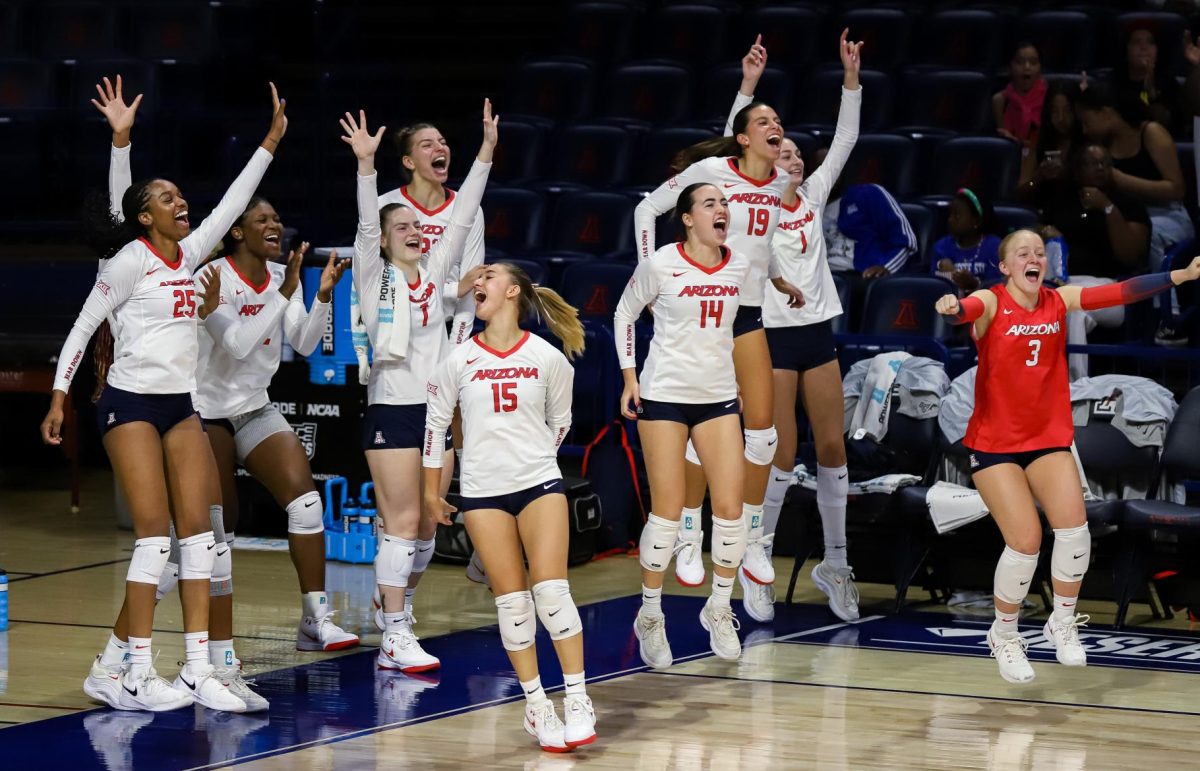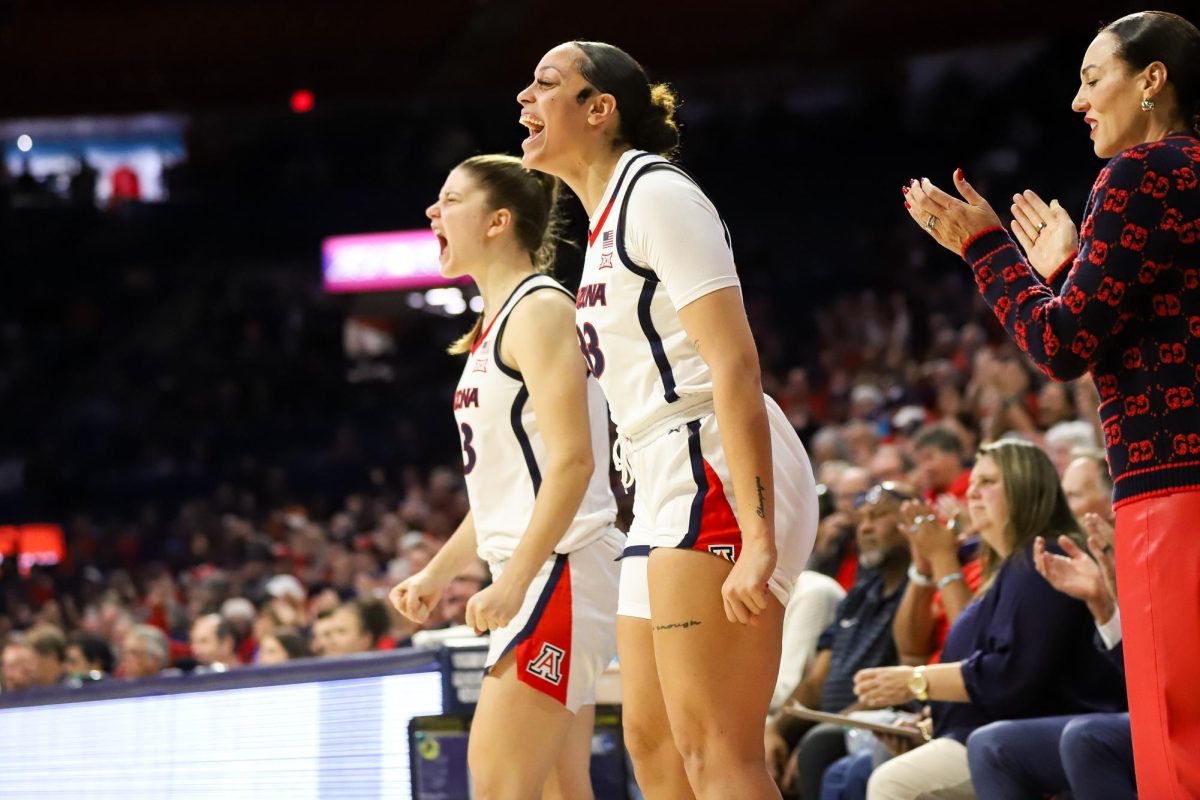Rankings prevailed this past weekend when Stanford’s No. 3 men’s and No. 1 women’s teams swept Arizona’s No. 2 men’s and No. 7 women’s teams on Friday, 155-143 and 178-114. The statement also held true on Saturday when California’s No. 4 men’s and No. 4 women’s teams swept Arizona 174.5-123.5 and 165.5-135.5.
The Bay Area schools made it look easy.
“”These teams are better than us right now,”” said head coach Frank Busch. “”I think from what I’ve seen and judging by what I’m seeing from our teams, do I think both of those teams are better than us going into the NCAA’s? No, I don’t.””
The Bay Area schools, as with the rest of the teams in the elite Pacific 10 Conference, train to peak during the conference schedule to prepare for the national championships, which is a fundamental difference between them and Arizona, according to Busch.
“”We do something where we try to make standards in Texas, they don’t,”” Busch said. “”Most of these teams are going to try and be very good in their conference meets. In our case, our conference meet is not our number-one priority, the NCAA’s are. A little bit different formula, same idea, but different formula, and I like our formula better.””
Busch references making standards at the Texas Invite in December. Despite the early peak and current decline in performance, Busch remains confident with his training regime and explains why Arizona wasn’t putting up faster times over the weekend, and why it wasn’t surprising.
“”It has proven over the years that it holds up in the end, percentage wise, of better swims that happen at the biggest meets,”” Busch said. “”We’ve been in this position so many times before.””
According to freshman standout Margo Geer, Busch’s emphasis on getting better at each meet took into effect from Friday to Saturday. Even though there were unfavorable scores for Arizona, the team came in with better mentalities.
“”We definitely knew Stanford and Cal were really good teams, and we were ready to race them,”” Geer said. “”Against Stanford we were just a little off, and we came in with a different attitude today and that just proved a lot.””
Geer herself had an off meet on Friday when she was outraced twice by Stanford’s Kate Dwelley. It was Geer’s first time collegiately racing Dwelley, who won both the 100-yard and 200-yard freestyle. Geer came in second in the 100y free and third in the 200y free.
On Saturday, Geer took the women’s 200y free and finished runner-up in both the 50y and 100y freestyle events. However, Geer didn’t take the 100y free on Saturday either when Cal’s Liv Jensen won by two hundredths of a second.
Geer, who’s also dealing with a minor foot injury, left Hillenbrand Aquatic Center on Saturday with new wisdom.
“”Frank (Busch) always talks about that its good to go against the best team,”” Geer said. “”You learn a lot about yourself and about your racing when you’re racing the best people in the country and in the world even.””
Another prominent force on the women’s side was junior captain Alyssa Anderson, who won the 1,000y freestyle both on Friday and Saturday. Anderson also won the 500y free and 200y butterfly against Cal.
On the men’s side freshman Mitchell Friedemann beat out teammates Cory Chitwood and Ivan Tolic, to take the men’s 100y backstroke on Friday. Friedemann claimed the same race against the Golden Bears the next day. He also noticed the team’s attitude adjustment on Saturday.
“”I feel like the first day with Stanford, we had some pretty good racing, but I feel like there was a big change, like our whole team, when we came out today,”” Friedemann said. “”Everyone was ready to race, the attitude was a lot better, and everyone gave 100 percent. It helps having really great captains, Cory (Chitwood) and Rob (Iddiols), even on the girls’ side. They pump you up.””



